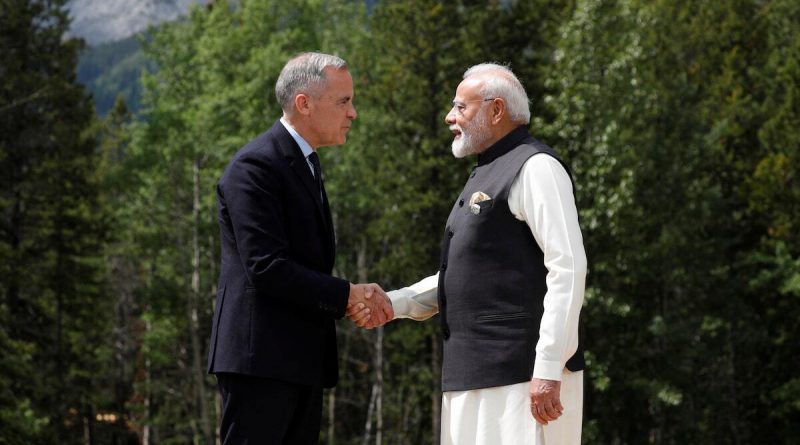Canada and India Move Closer to Long-Term Uranium Supply Deal Worth $2.8 Billion
Ottawa – Canada and India are nearing the conclusion of a major export agreement that could see billions of dollars’ worth of Canadian uranium shipped to India over the next decade.
The proposed arrangement, valued at around US$2.8 billion, is expected to support India’s growing energy needs and strengthen bilateral cooperation in the nuclear sector.
The deal, if finalised, would cover a ten-year supply period and involve uranium deliveries from Canada’s well-established producer Cameco.
The agreement is being viewed as part of a broader effort to expand nuclear collaboration between the two countries, which have been working to rebuild momentum in their trade relationship.
Both governments have so far declined to provide public confirmation or details as discussions remain ongoing.
Officials from India’s trade ministry and Canada’s federal agencies have not issued formal statements, and the report remains unverified by independent sources.
The development follows a meeting between Canadian Prime Minister Mark Carney and Indian Prime Minister Narendra Modi on the sidelines of the G20 Summit in Johannesburg.
The leaders held talks aimed at re-energising their diplomatic and economic engagement after a period of tension that slowed negotiations between the two countries.
India later announced that both sides had agreed to restart stalled discussions toward a new high-ambition trade framework.
The planned Comprehensive Economic Partnership Agreement seeks to deepen market access and broaden commercial opportunities between the two economies.
According to India’s Prime Minister’s Office, the renewed talks are intended to help both countries work toward doubling bilateral trade to USD 50 billion by 2030.
Officials in New Delhi emphasised that a stable and long-term energy partnership would play a key role in strengthening overall economic ties.
For India, a reliable uranium supply supports the country’s broader goals of energy diversification and expansion of its civil nuclear programme.
The country continues to invest in nuclear energy as a way to increase clean power generation and reduce dependence on fossil fuels.
Canada, on the other hand, has long been a global supplier of uranium and is looking to expand its presence in fast-growing markets.
A long-term partnership with a major economy like India fits into Canada’s strategy of strengthening access to energy-related export opportunities.
Uranium exports also contribute to Canada’s efforts to support cleaner global energy and to build sustainable economic ties with strategic partners.
The ongoing discussions point toward a future where both countries could leverage nuclear cooperation to advance shared energy and climate objectives.
The reported deal may form part of a broader framework of collaboration that includes trade, technology exchange and support for renewable and low-carbon pathways.
Both governments have indicated that expanding cooperation in emerging sectors remains a high priority.
While no final timeline has been announced, the momentum from the recent high-level meetings suggests a growing political willingness to advance the agreement.
If successfully concluded, the deal would represent one of the most significant recent developments in Canada–India economic relations.
Observers note that nuclear energy partnerships can often lay the groundwork for deeper strategic engagement.
The potential uranium deal signals a shift toward rebuilding trust and opening new channels for long-term collaboration.
As discussions progress, both sides are expected to refine the commercial and regulatory details required to support a decade-long energy supply agreement.
Further clarity may emerge as trade negotiations resume and as both governments outline next steps in their evolving partnership.


